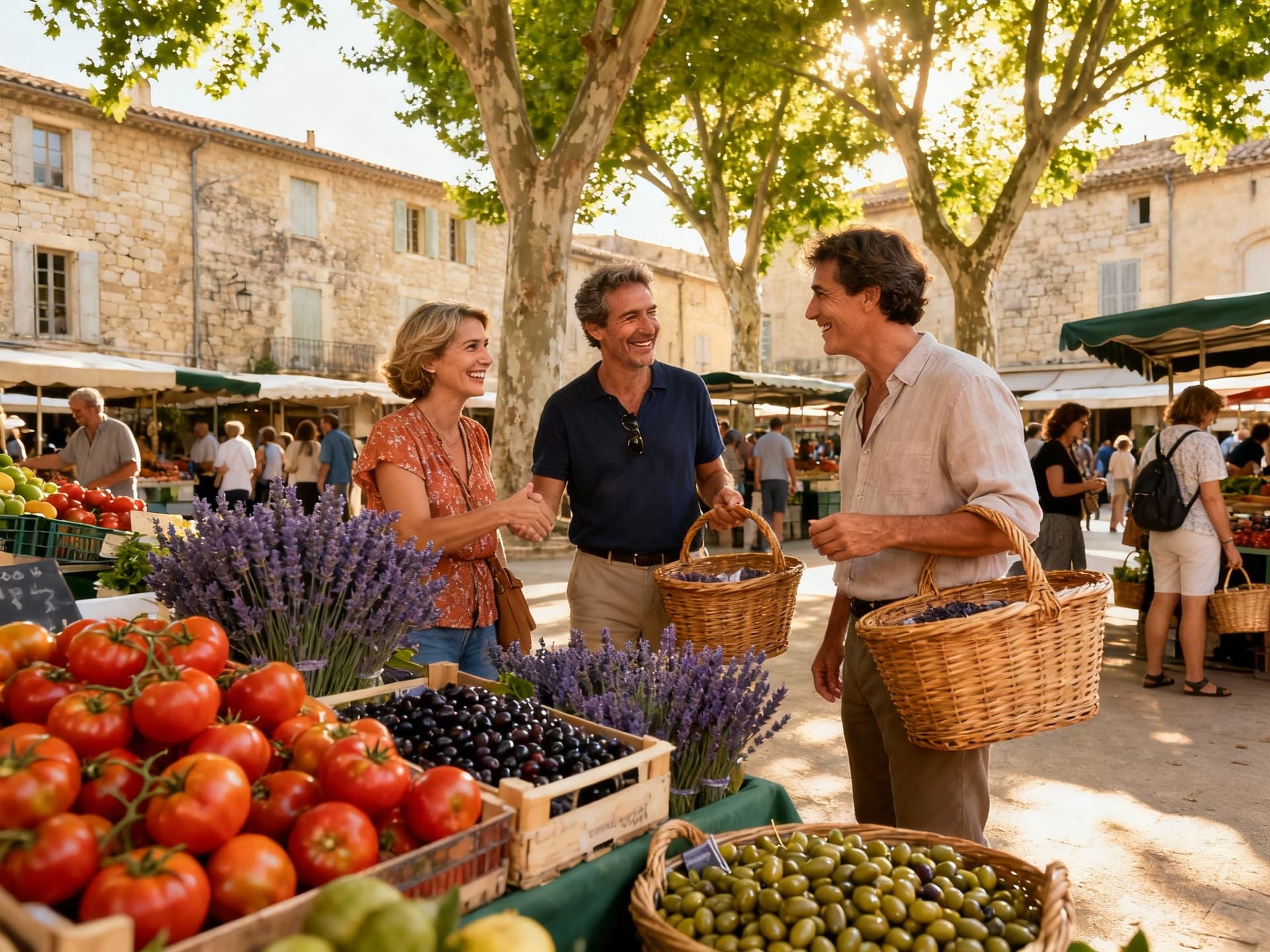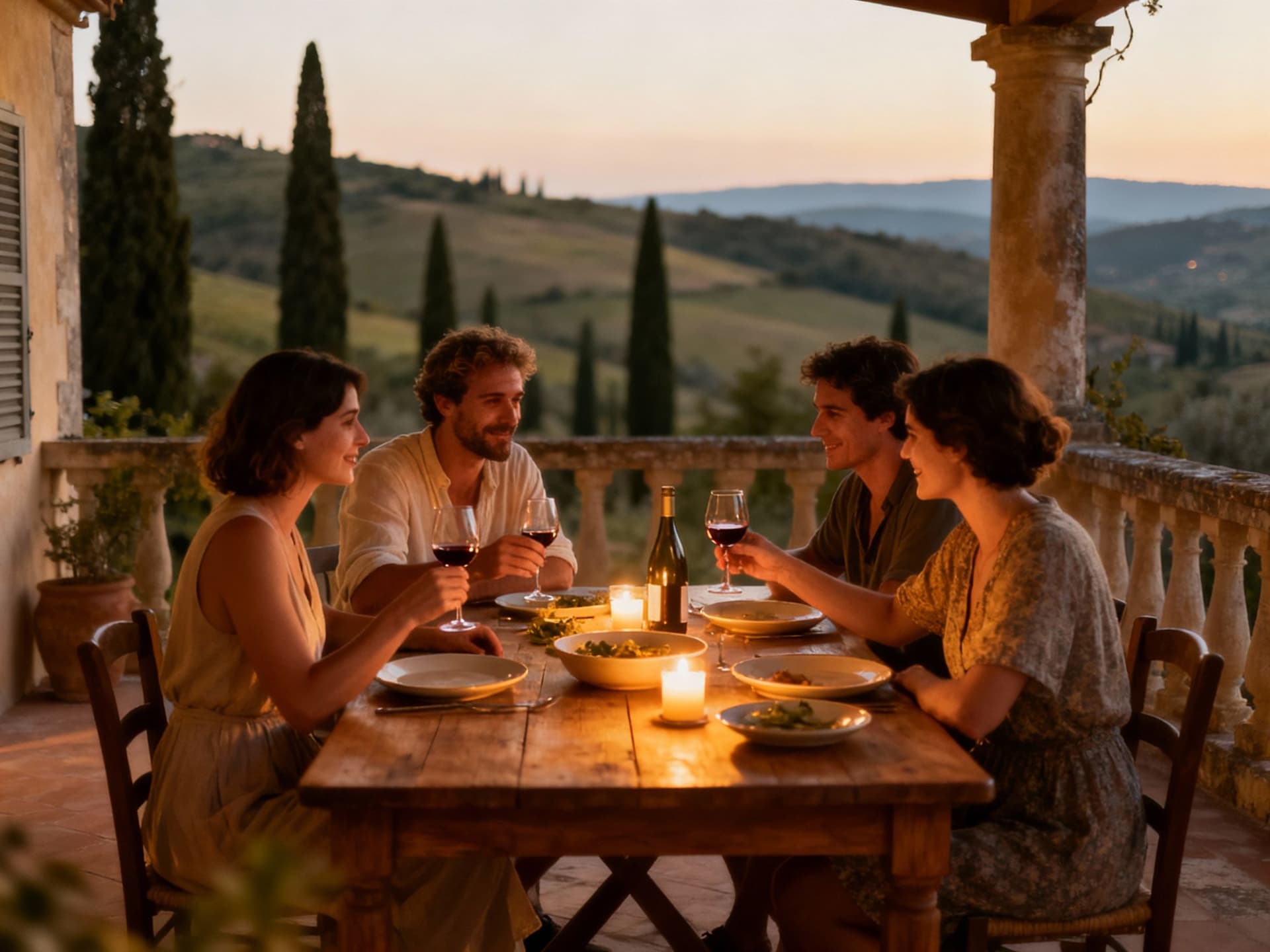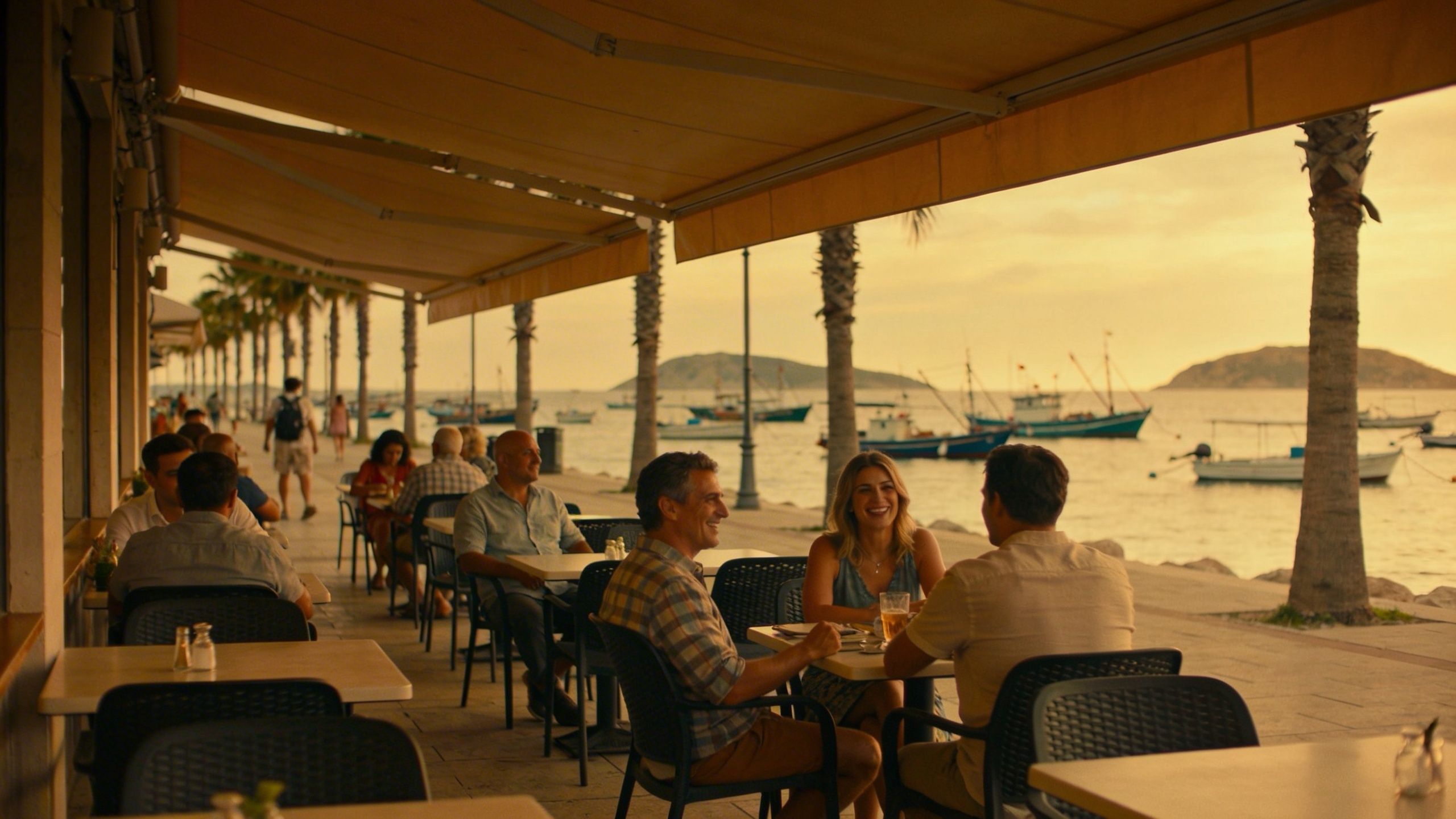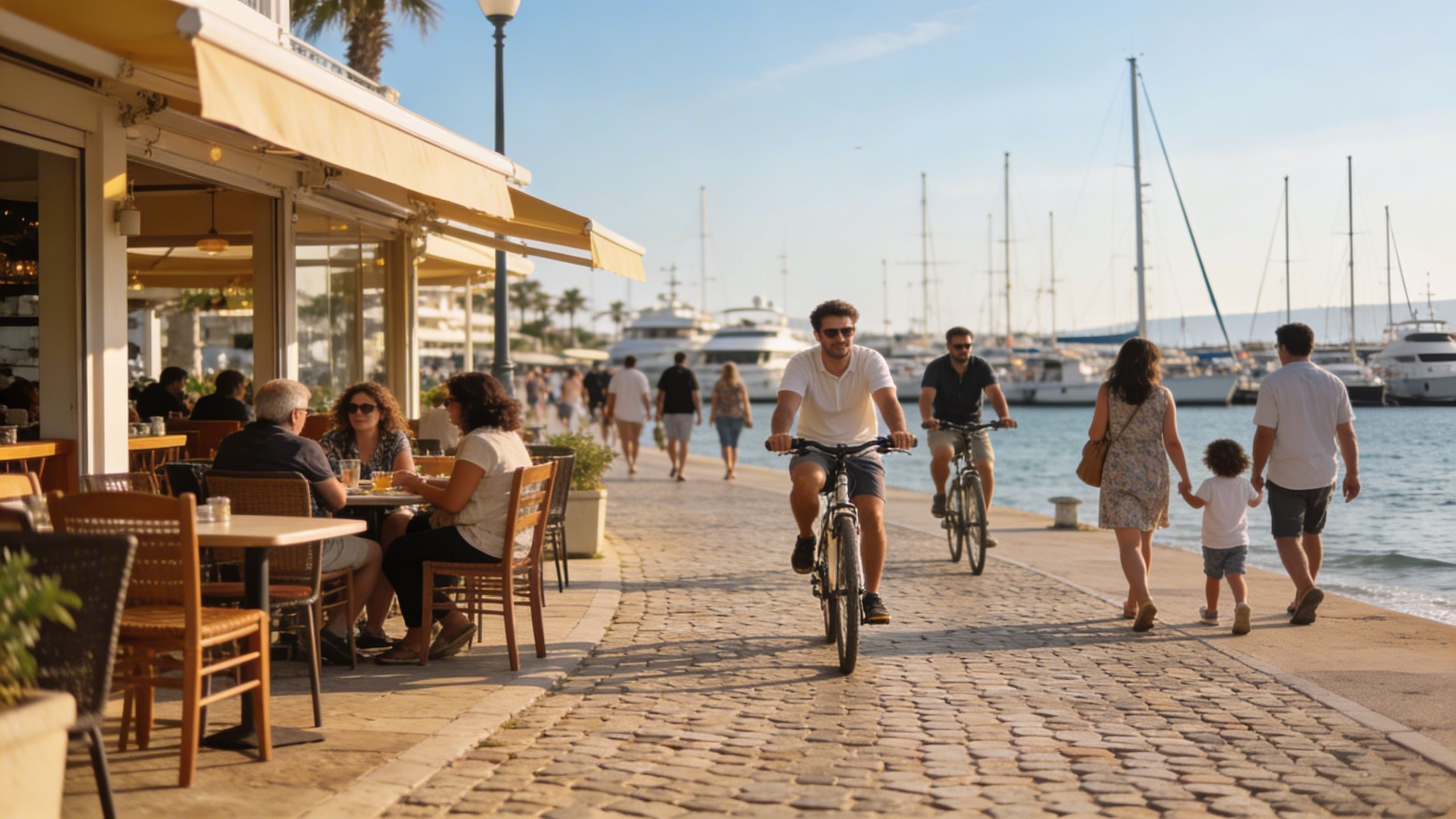Why France’s Coastal Towns Sell a Different Dream Than Costa del Sol
France’s coastal towns blend market stability with ritual-rich living — choose lifestyle first, data second; INSEE shows prices stabilising in early 2025.
Imagine a morning in France: espresso steam on a narrow rue in Nice, a boulangerie line in Aix, fishermen unloading catch at Cassis while cyclists climb lavender-scented lanes above the coast. This is not a brochure scene — it’s everyday life for people who chose France for its rhythm: long lunches, market Saturdays and afternoons spent at seaside terraces. For international buyers comparing the sunlit certainty of Spain’s Costa del Sol with France’s coastal towns and hill villages, the question isn’t only price; it’s how life actually feels here, across seasons and streets.
Living the French coastal life

France’s coastal lifestyle moves at variable tempos: exuberant in summer along the Côte d'Azur, measured and local in smaller ports and hill towns. After a period of market stagnation, housing activity picked up in 2025 — but life here is shaped by slow mornings at markets, late dinners, and neighborhood cafés where proprietors know regulars by name. That human tempo influences what you buy: a compact pied-à-terre in Marseille to plug into cultural life, or a Provençal farmhouse in the hills for space and serenity.
Neighborhood spotlight: Nice to Saint-Paul-de-Vence
Walk Nice’s Promenade or veer inland to Saint-Paul-de-Vence and you’ll see why buyers are shifting to quieter hill towns. Mougins and Valbonne offer larger plots, village squares and a different pace — still under an hour from Cannes airport but with room to garden, host friends, or run a small B&B. These towns deliver community life: Saturday markets under plane trees, wine bars with locals debating footy, and artisans who know every property’s history.
Food, markets and everyday rituals
From morning fish stalls in Marseille to Provençal markets in Apt, food structures daily life. Expect to buy vegetables still warm from the ground, to find a favourite fromager on rue des Antiquaires and to book a table weeks in advance at summer beachside bistros. These rituals shape property choices: access to a weekly market, a kitchen suited to slow cooking and a terrace for evening aperitifs rank as highly as square metres.
Making the move: lifestyle meets market reality

Dreams collide with data. National statistics show prices stabilising and modest growth in early 2025, reversing earlier decline. That matters because coastal and hill markets in France don’t move in lockstep with Spain’s Costa del Sol: supply constraints, planning rules and the heritage character of many properties keep French coastal stock tighter — and sometimes pricier per square metre — yet offer slower turnover and a different rental seasonality profile.
Property styles and how you’ll actually live in them
In France, choices range from seafront apartments in Antibes to 19th‑century townhouses in Aix and stone bastides inland. A small seafront flat gives immediate access to cafes and promenades but limited outdoor space. A renovated mas (farmhouse) in the Luberon offers gardens and privacy but requires more maintenance and occasional adaptation for modern heating. Match the property to your routine: do you value daily sociability or private outdoor life?
How local experts turn lifestyle into a shortlist
Work with agents who know which streets host Sunday markets, where school catchments change in five years, and which south‑facing terraces are immune to mistral winds. They’ll prioritise lifestyle fit: proximity to your favourite bakery, a daytime market route, and community life that suits families or retirees.
Matchmaking checklist: lifestyle + practical
1. Morning routine: is the boulangerie within a 5–10 minute walk? 2. Seasonality: will the area feel deserted in winter or sustain year‑round life? 3. Transport: airport and TGV links for frequent travel. 4. Outdoor space: terrace or garden size for hosting. 5. Community: English‑speaking networks vs local integration.
Insider knowledge: what expats wish they’d known
Expats tell the same stories: they underestimated seasonal quiet, the friction of local bureaucracy, and how much social life depends on small rituals — the marché, the pétanque square, the café owner who remembers names. Compared to Costa del Sol’s more recent influx of year‑round remote workers, some French towns retain a slower turnover; that’s good for long‑term neighbourhood cohesion but means fewer quick resale buyers if you plan to flip.
Cultural integration, language and daily life
Learning French unlocks more than conversation: it opens doors in village councils, school meetings and the market stall. In practical terms, bilingual agents and local neighbours make settling easier. For many buyers, a small investment in language classes pays off in invitations, trusted tradespeople and better negotiating when local customs matter in sales.
Long‑term lifestyle and property resilience
France’s property market rewards patience. Heritage protections and strict planning can limit oversupply, and coastal or hill villages often maintain value through scarcity and authentic lifestyle. That means maintenance matters: old roofs, insulation, and energy upgrades are common expenses but also opportunities to add value and improve year‑round comfort.
Conclusion: choose the life, then the property. If you crave a village square, local markets and a measured pace with seasonal variety, French coastal and hill markets offer that context. If you prioritise warm winters, fast rental turnover and a younger remote‑worker scene, Costa del Sol remains compelling. Either way, start with lifestyle priorities — markets and data (see INSEE and notaires indices) will then help you convert that dream into a shortlist and a purchase that fits how you want to live.
British investor turned advisor after buying in Costa del Sol since 2012. Specializes in cross-border compliance and data-driven investment strategies for UK buyers.


